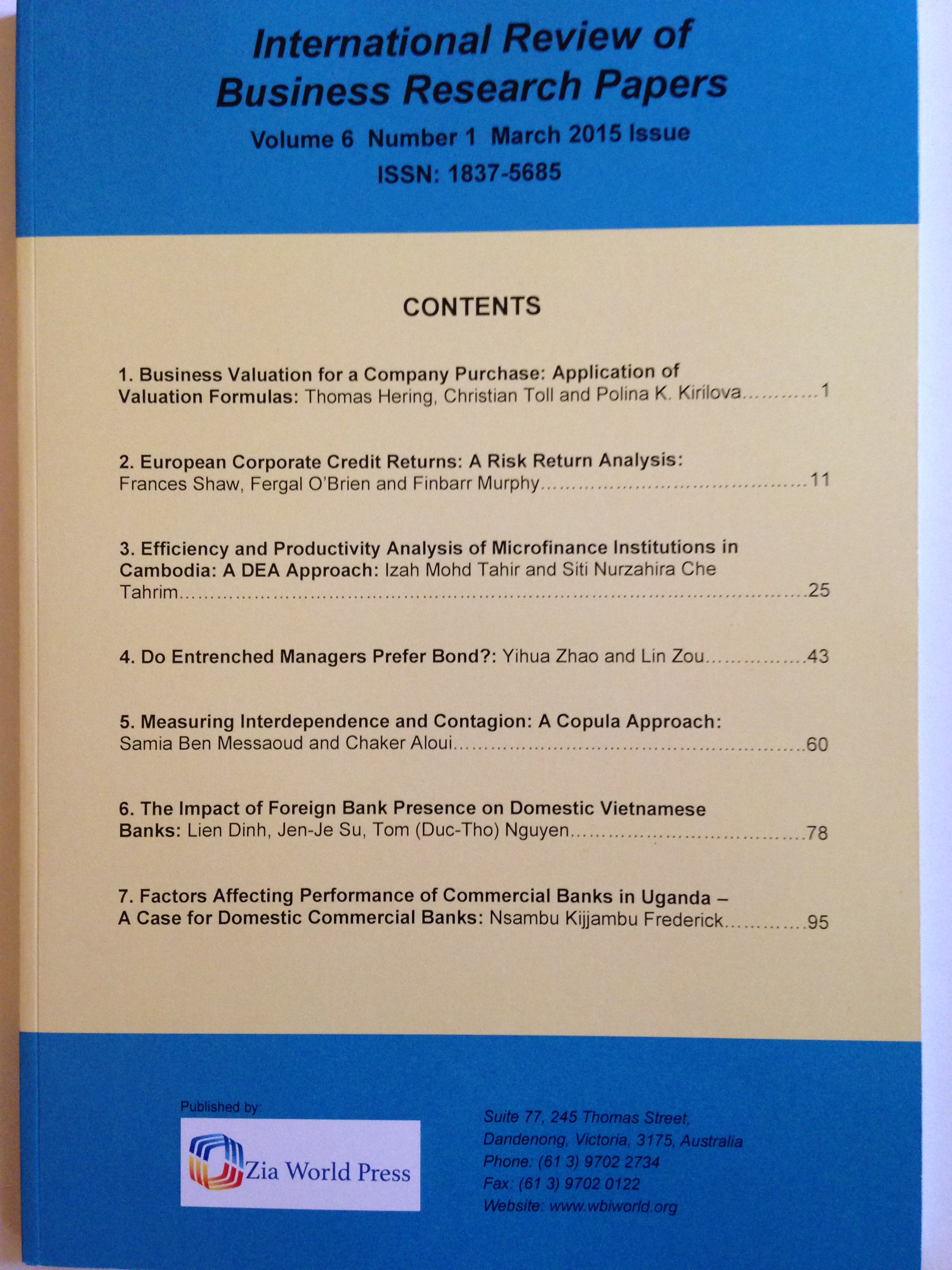September
2020

September 2020 (International Review of Business Research Papers)
Total Articles - 6
